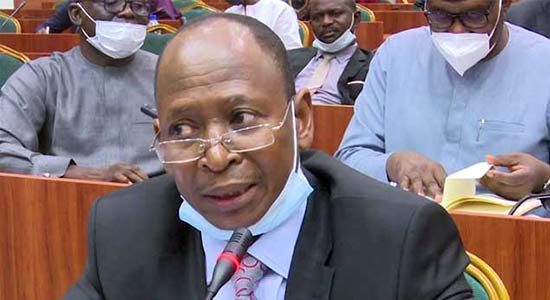The Economic and Financial Crimes Commission (EFCC) said it has traced not less than properties to the Accountant-General of the Federation, Ahmed Idris.
On Wednesday, the Minister of Finance, Budget and National Planning, Zainab Ahmed, announced the suspension of Idris who is currently being grilled by the EFCC for fraud amounting to N80bn.
The letter titled: ‘Letter of Suspension’, read in part: “Following your recent arrest by EFCC on allegations of diversion of funds and money laundering, I write to convey your suspension from work without pay effective May 18, 2022.”
Investors King can confirm that an anonymous EFCC official revealed that the 17 properties linked to the former AG of the Federation are located in the UK, Dubai, Abuja, Lagos, and Kano.
However, he said preliminary investigations showed that the nation’s chief accountant allegedly used proxies to buy some of these properties. The commission would therefore need to invite some of the proxies of the accountant-general.
The official added that from all indications, these properties were purchased while Idris was in office and did not declare them before the Code of Conduct Bureau as stipulated by law.
“About 17 houses in London, Lagos, Kano, Abuja and Dubai have been traced to him. In Abuja, some of the houses are located in serviced estates,” he added.
Investors King reported earlier in the week that EFCC had arrested the suspended Accountant-General, saying “the AGF raked off the funds through bogus consultancies and other illegal activities using proxies, family members and close associates.”
“The funds were laundered through real estate investments in Kano and Abuja.
“Mr. Idris was arrested after failing to honour invitations by the EFCC to respond to issues connected to the fraudulent acts.
“It further alleged that the funds were laundered through real estate investments in Kano and Abuja,” EFCC added.
REcall that Ahmed Idris had been under surveillance since last year following allegations that he offered huge sums of money to a family in order to secure the marriage of their 16-year-old daughter.

 Forex2 weeks ago
Forex2 weeks ago


 Naira2 weeks ago
Naira2 weeks ago
 Billionaire Watch2 weeks ago
Billionaire Watch2 weeks ago




 Naira2 weeks ago
Naira2 weeks ago




 Naira2 weeks ago
Naira2 weeks ago




 Naira4 weeks ago
Naira4 weeks ago


 Naira6 days ago
Naira6 days ago
 Banking Sector4 weeks ago
Banking Sector4 weeks ago






















